Note: I want to make it absolutely clear that I DO NOT SANCTION SLAVERY OR RACISM and I did not enjoy the racist ideas presented in this book; however, Gone with the Wind is a classic for a reason and I admire it for the story it tells about human passion, blind stupidity, and unrequited love.
In her large black hands was a tray upon which food smoked, two large yams covered with butter, a pile of buckwheat cakes dripping syrup, and a large slice of ham swimming in gravy.
Margaret Mitchell, Gone with the Wind
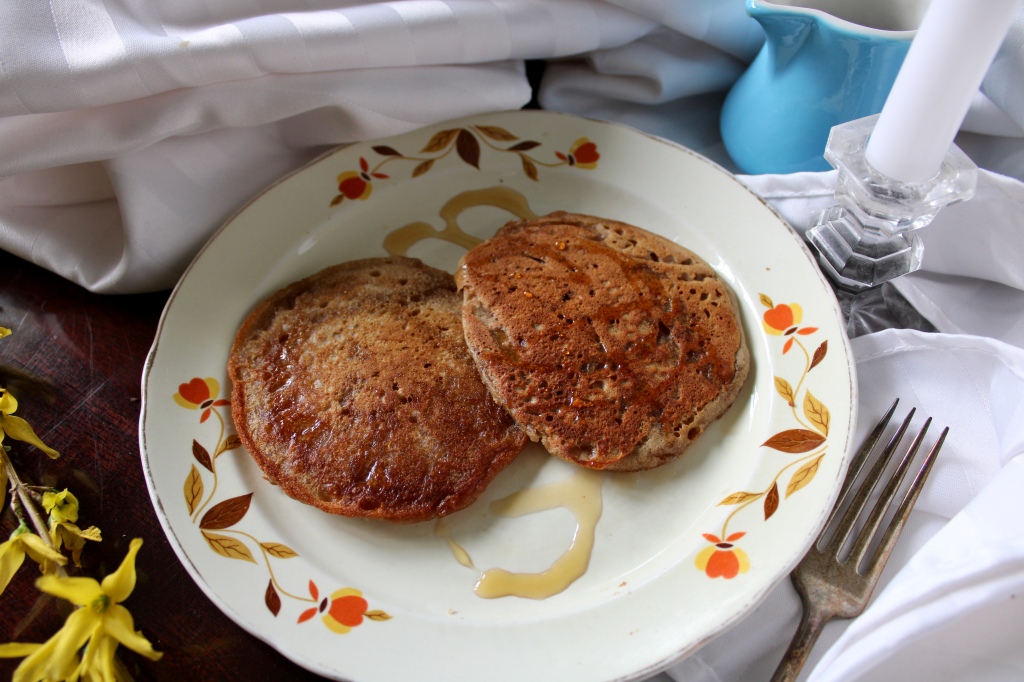
I didn’t really want to read Gone with the Wind. I only got it from the library because it was a classic that I felt I “should” read, and I knew my sister had read it several years ago. I was even more reluctant to read it when I picked up the hulking tome from the library and actually held it in my hands. Once I started reading, though, I was hooked. I was not prepared for the captivating tale of jealousy, passion, heartbreak, and selfishness that Ms. Mitchell had in store for me.
Scarlett O’Hara fascinates me. Never before have I encountered such a selfish, nasty anti-heroine who nonetheless I wanted to be happy, and whose character arc develops so much yet leaves her exactly where she began–or perhaps even worse off.
Scarlett is sensuous, headstrong, and independent, and we see this in her attitude towards food throughout the book.
At the very beginning, just before the fateful barbecue where Scarlett meets Rhett, is rejected by Ashley, and agrees to marry Charles Hamilton, Mammy brings her a plate of food so she won’t need to eat at the barbecue–and she has to eat after she’s laced into her corset, or her waist won’t be able to compress to seventeen inches. At first Scarlett refuses to eat, wanting to leave room for the delicious food at the barbecue to come–and when Mammy does bully her into eating, she fills up at once– “I can’t eat another bite.”
Scarlett sopped the wheat cake in the gravy and put it in her mouth. Perhaps there was something in what Mammy said. There must be something in it, for Ellen said the same things, in different and more delicate words. In fact, the mothers of all her girl friends impressed on their daughters the necessity of being helpless, clinging, doe-eyed creatures. […] There was no one to tell Scarlett that her own personality, frighteningly vital though it was, was more attractive than any masquerade she might adopt.
Margaret Mitchell, Gone with the Wind
Though she might pretend, Scarlett is no “helpless, clinging, doe-eyed creature”–but neither are her mother and Mammy, who exhort her to be; not even Melanie fits this description, though she might seem to at first.
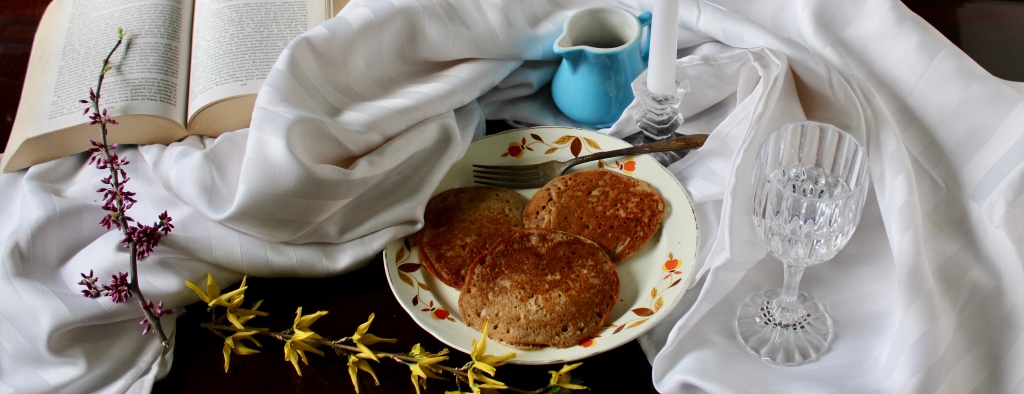
Later in the book, right after the war, when Scarlett and her family are starving at Tara, hunger becomes her greatest enemy, and the satisfaction of that hunger becomes her greatest drive.
[Scarlett] had become what Grandma Fontaine counseled against, a woman who had seen the worst and so had nothing else to fear … Only hunger and her nightmare dream of hunger could make her afraid. […]
“I’m going to have money some day, lots of it, so I can have anything I want to eat.”
Margaret Mitchell, Gone with the Wind
Then, when she finally marries Rhett and he takes her to Louisiana for their honeymoon, she revels in her ability to eat as much as she wants of whatever she wants.
Her appetite never dulled, for whenever she remembered the everlasting goobers and dried peas and sweet potatoes at Tara, she felt an urge to gorge herself anew on Creole dishes.
“You eat as though each meal were your last,” said Rhett. […] “If you don’t stop being such a glutton, you’ll be […] fat […] and then I shall divorce you.”
But she only put out her tongue at him and ordered another pastry, thick with chocolate and stuffed with meringue.
Margaret Mitchell, Gone with the Wind
I almost made that pastry instead of the buckwheat cakes. Something about the words “thick with chocolate” is incredibly seductive.
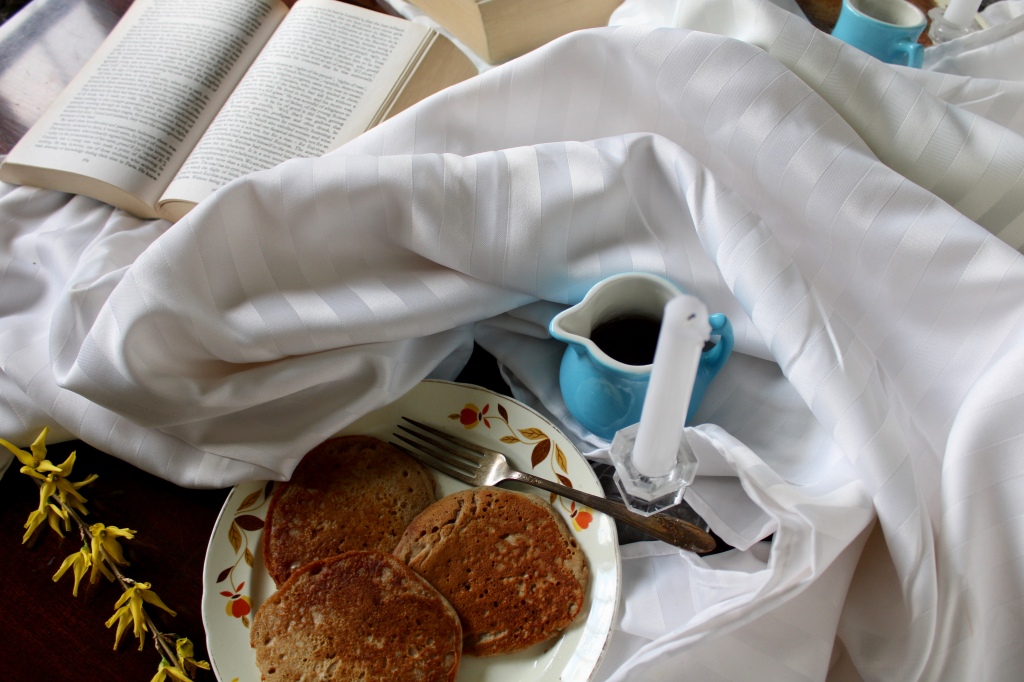
Scarlett is strong, but blind. She thinks she knows what she wants, but she wants the wrong things. She thinks only of herself and her own happiness, and is not easy to love on a day-to-day basis. If this book taught me anything, it’s that I need to value the people I love, and to show them that I value them.
Scarlett never finds a middle ground; she’s gorged or she’s empty, she’s got everything or she’s got nothing. She is a woman of appetites, not only for food, but for money and luxury and, on a deeper level, approval, although she seeks approval from the wrong people and doesn’t value the right people’s approval and love.
If I was going to bring in a reference to another epic tale right here, I’d cite Hamilton; like Alexander Hamilton, Scarlett will never be satisfied.
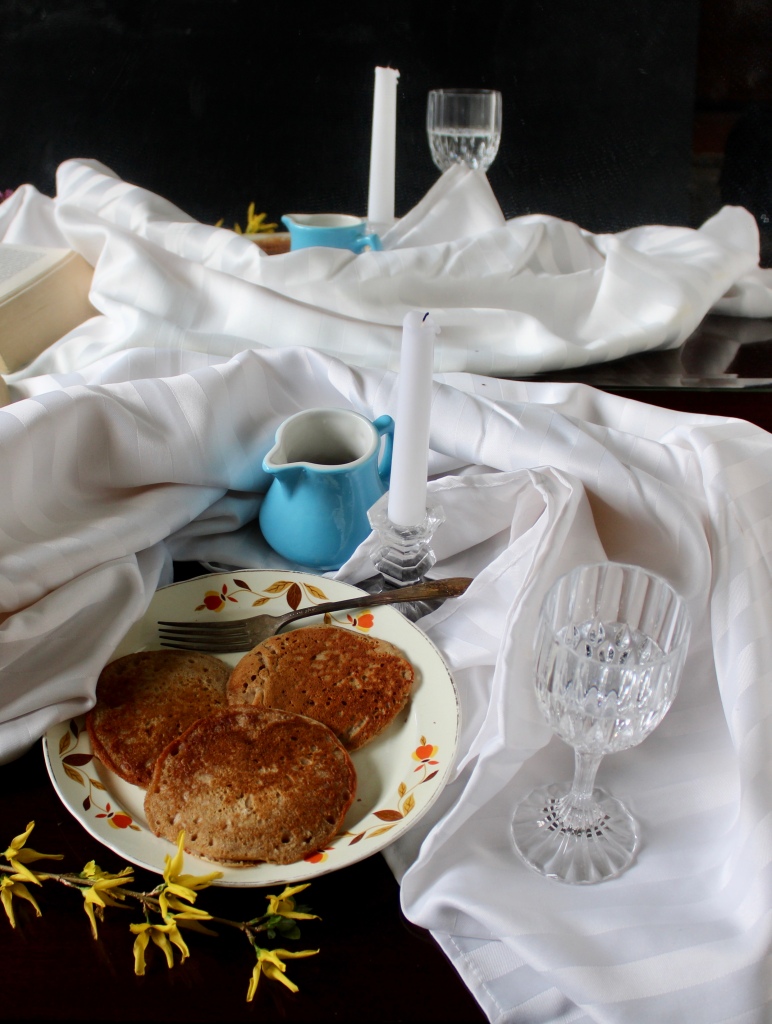
Old-Fashioned Buckwheat Cakes
This recipe comes from the website Ancestors in Aprons.
- 2 cups buckwheat flour
- 1 cup buttermilk
- 1 cup warm water
Mix, cover with a towel, and let it sit in the fridge overnight. The next morning, in a separate bowl, mix together:
- 1 tsp baking soda dissolved in 1/4 cup water
- 2 Tablespoons baking powder
- 1 Tablespoon bacon grease or softened butter
- 1 Tablespoon molasses
Add the leavening mixture to the buckwheat mixture and stir to combine. Let the batter sit at room temperature, loosely covered, for at least half an hour.
Cook, using 1/4 cup batter for each pancake. Eat with syrup, or butter and apple butter.
Note: These were good! Next time I’d put in some salt, though.
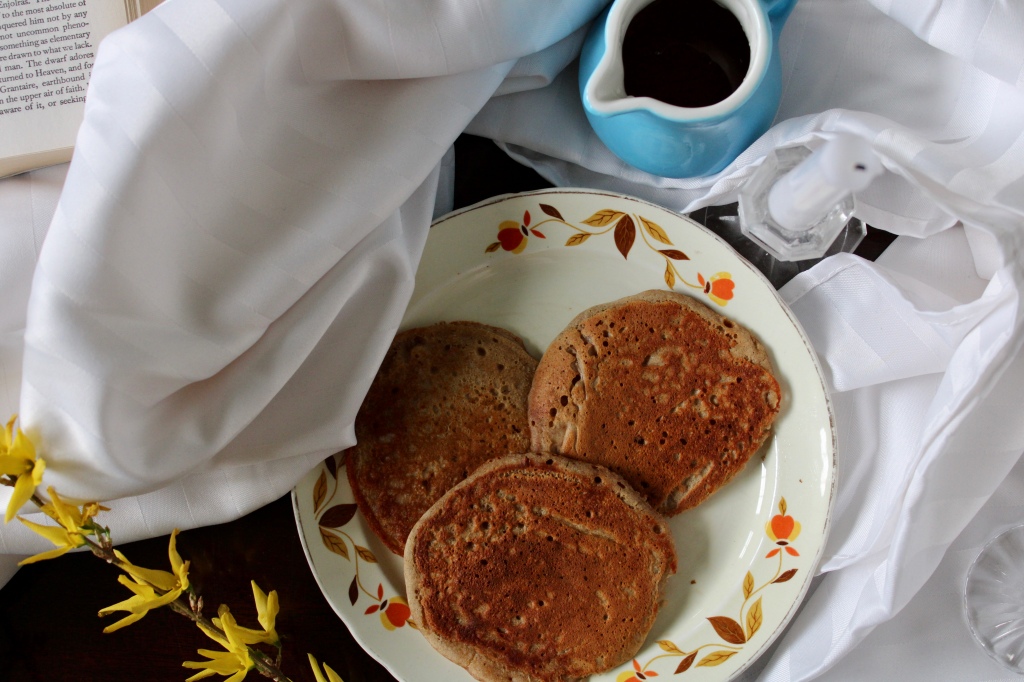
These look lovely. Buckwheat has so much flavor.
LikeLike
Yes, they turned out really well! I love buckwheat pancakes.
LikeLiked by 1 person